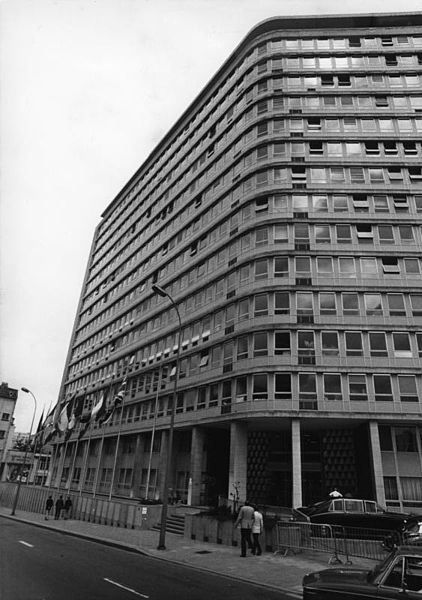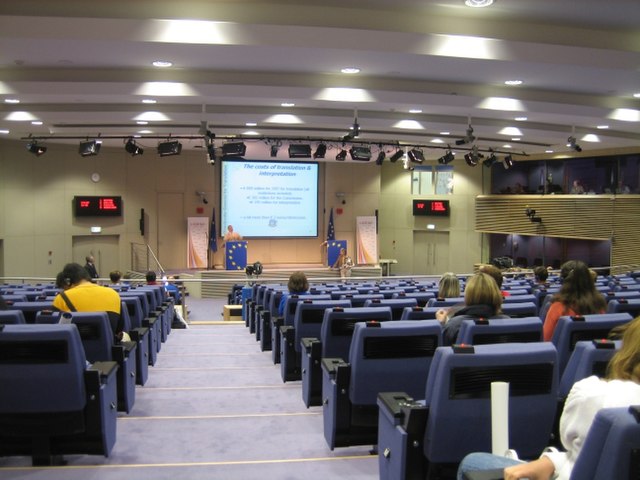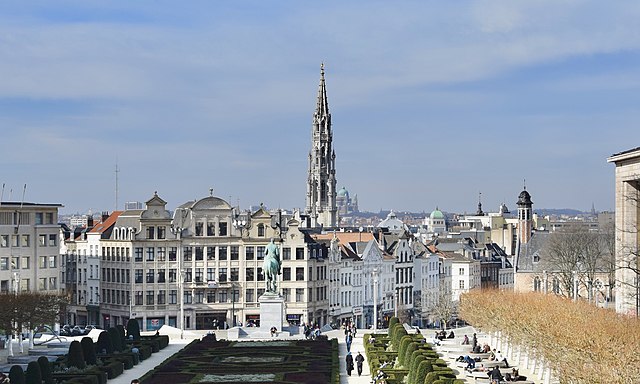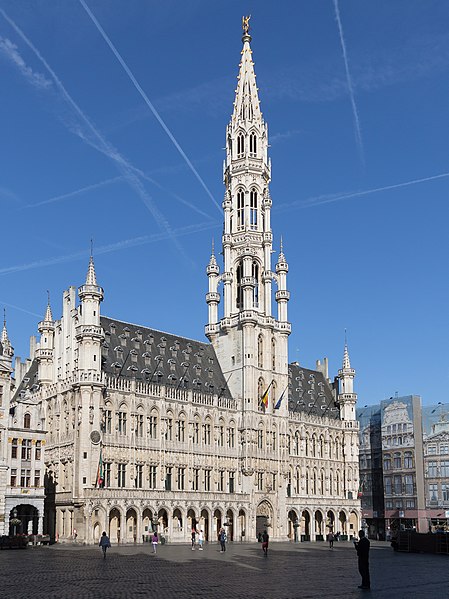Brussels and the European Union
Brussels (Belgium) is considered the de facto capital of the European Union, having a long history of hosting a number of principal EU institutions within its European Quarter. The EU has no official capital but Brussels hosts the official seats of the European Commission, Council of the European Union, and European Council, as well as a seat of the European Parliament. In 2013, this presence generated about €250 million and 121,000 jobs. The main rationale for Brussels being chosen as "capital of the European Union" was its halfway location between France, Germany and the United Kingdom, the three countries whose rivalry played a role in starting the two World Wars and whose reconciliation paved the way for European integration.
Aerial view of Brussels' European Quarter, hosting most of the EU's institutions
The Charlemagne building (before renovation), headquarters of the Council of the European Union between 1971 and 1995
The Breydel building served as the European Commission's headquarters while the Berlaymont was renovated
Brussels attracts the most journalists in the world (Commission's press room pictured)
The City of Brussels is the largest municipality and historical centre of the Brussels-Capital Region, as well as the capital of the Flemish Region and Belgium. The City of Brussels is also the administrative centre of the European Union, as it hosts a number of principal EU institutions in its European Quarter.
Panorama of the city centre from the Mont des Arts/Kunstberg
Engraving of Brussels from c. 1610
Manneken Pis
Brussels' Town Hall








